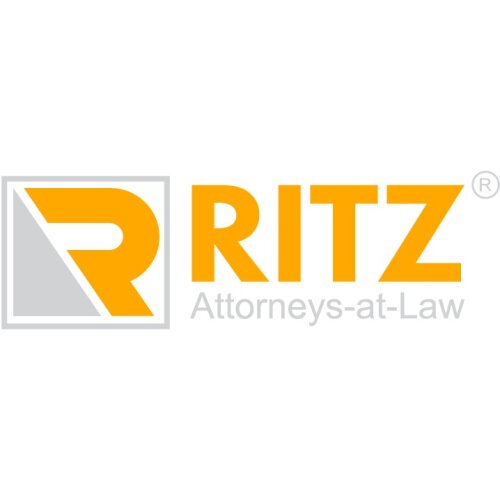Best International Trade Law Lawyers in Malawi
Share your needs with us, get contacted by law firms.
Free. Takes 2 min.
Or refine your search by selecting a city:
List of the best lawyers in Malawi
About International Trade Law in Malawi
International Trade Law in Malawi encompasses both international and domestic legal frameworks that govern the exchange of goods and services across international borders. Malawi, being a member of the World Trade Organization (WTO) and various regional trade agreements, adheres to a broad spectrum of international trade norms and standards. The country's trade policies are designed to foster economic growth by promoting efficient trade practices, enabling foreign investment, and ensuring compliance with global trade regulations. Local applications include customs regulations, tariffs, import and export controls, and measures to combat trade malpractices.
Why You May Need a Lawyer
Understanding and navigating the complexities of International Trade Law in Malawi can be challenging. Here are common situations where you might require legal assistance:
- Import/Export Issues: Assistance with compliance regarding tariffs, customs duties, and regulations.
- Trade Disputes: Legal representation in conflicts arising from international trade agreements or practices.
- Contract Negotiation: Crafting and evaluating international trade contracts to ensure legal soundness.
- Regulatory Compliance: Understanding changes in trade laws and their implications for businesses.
- Intellectual Property Rights: Protecting trademarks, patents, and copyrights in international markets.
Local Laws Overview
Key aspects of local laws in the context of International Trade Law in Malawi include:
- Customs and Excise Duties: Governed by the Customs and Excise Act, these laws regulate the import/export of goods and services.
- Investment Promotion: The Malawi Investment and Trade Centre (MITC) offers guidelines to facilitate foreign investments.
- Trade Remedies: Measures such as anti-dumping, countervailing duties, and safeguards under the Competition and Fair Trading Act.
- Export Licensing: Required for certain products, ensuring regulatory compliance.
- Agricultural Trade Regulations: Special rules apply for exporting agricultural commodities, reflecting Malawi's economic priorities.
Frequently Asked Questions
What are the main international trade agreements Malawi is a part of?
Malawi is a member of several trade agreements, including the Southern African Development Community (SADC), the Common Market for Eastern and Southern Africa (COMESA), and the WTO.
How can I start an import/export business in Malawi?
Commencing an import/export business involves registering your company, obtaining necessary licenses, and ensuring compliance with customs regulations. Consulting a trade lawyer can be beneficial.
What tariffs apply to imported goods in Malawi?
Tariffs vary depending on the goods' classification under the Harmonized System code. A trade lawyer or customs expert can help clarify specific tariffs applicable to your goods.
How do I resolve a trade dispute under Malawian law?
Dispute resolution mechanisms include negotiation, arbitration, and litigation. Legal advice can help determine the best approach for your specific case.
What are the penalties for non-compliance with trade laws in Malawi?
Penalties can include fines, seizure of goods, and legal sanctions. Ensuring strict compliance with trade regulations is crucial.
How can I ensure my product meets Malawian import standards?
Seek guidance on product standards and quality specifications set by the Malawi Bureau of Standards (MBS) and other regulatory bodies.
Is there support for new exporters in Malawi?
Yes, the Malawi Investment and Trade Centre (MITC) provides resources and support to help new exporters navigate the processes involved.
What is the process for obtaining an export license?
The process involves application through relevant governmental departments, with specifics depending on the type of goods to be exported.
Can trade restrictions impact cross-border trade with neighboring countries?
Yes, non-tariff barriers, import/export bans, and health regulations can impact cross-border trade. Legal experts can provide insights and solutions.
How does Malawi handle intellectual property rights in international trade?
Intellectual property rights are protected under various international treaties to which Malawi is a signatory, including WIPO agreements.
Additional Resources
For further information and assistance, consider reaching out to the following resources:
- Malawi Revenue Authority: For customs and tax-related queries.
- Malawi Investment and Trade Centre: Support and guidance for investment and trade opportunities.
- Ministry of Industry and Trade: Government policies and regulatory framework.
- Trade Law Attorneys: Professional legal representation and advice.
- World Trade Organization (WTO): General rules and regulations governing international trade.
Next Steps
If you need legal assistance in International Trade Law, consider the following steps:
- Identify Your Needs: Determine the specific trade issue you are facing.
- Research Lawyers: Look for attorneys specializing in International Trade Law with experience in Malawian law.
- Schedule Consultations: Meet with lawyers to discuss your case and obtain advice.
- Consider Legal Fees: Understand the cost implications and agree on terms.
- Proceed with Representation: Engage a lawyer you trust to handle your legal matter.
Engaging with a qualified trade lawyer can provide assurance and resolution to complex trade issues, ensuring compliance and protecting your business interests in Malawi.
Lawzana helps you find the best lawyers and law firms in Malawi through a curated and pre-screened list of qualified legal professionals. Our platform offers rankings and detailed profiles of attorneys and law firms, allowing you to compare based on practice areas, including International Trade Law, experience, and client feedback.
Each profile includes a description of the firm's areas of practice, client reviews, team members and partners, year of establishment, spoken languages, office locations, contact information, social media presence, and any published articles or resources. Most firms on our platform speak English and are experienced in both local and international legal matters.
Get a quote from top-rated law firms in Malawi — quickly, securely, and without unnecessary hassle.
Disclaimer:
The information provided on this page is for general informational purposes only and does not constitute legal advice. While we strive to ensure the accuracy and relevance of the content, legal information may change over time, and interpretations of the law can vary. You should always consult with a qualified legal professional for advice specific to your situation.
We disclaim all liability for actions taken or not taken based on the content of this page. If you believe any information is incorrect or outdated, please contact us, and we will review and update it where appropriate.
Browse international trade law law firms by city in Malawi
Refine your search by selecting a city.
















